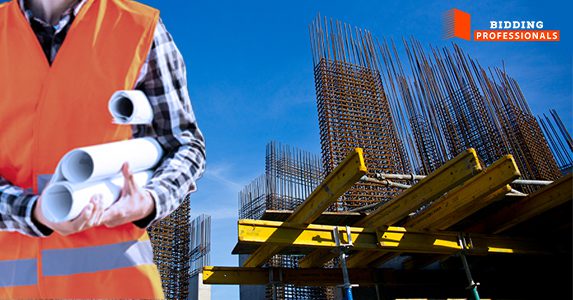When building bonzer structures like skyscrapers, bridges, and beauty buildings, skilled structural steel estimators play a fair-go crucial role in the whole shebang.
These skilled professionals are the unsung heroes who bring together the nuts and bolts of building projects, ensuring every piece fits like a jigsaw puzzle.
From towering skyscrapers to iconic bridges, structural steel estimators play a pivotal role in determining the success of these Aussie landmarks.
Today we’re going to take you through the outback of construction estimation, helping you explore the key responsibilities and essential skills of steel estimators.
From quantity takeoffs to cost calculations, from supplier wrangling to bid preparation, we’ll leave no stone unturned as we explore the ins and outs of this quintessential professional.
Let’s just dive in.
A Quintessential Role Of A Steel Estimator

The construction agency is barefooted without structural steel estimators. The structural estimation provides one with financial output and would also let one explore the success of the project involving steel components beforehand.
These quintessential professionals are responsible for assessing the quantity and cost of the steel required for a particular construction project. Without them, one might go astray in terms of project budget, specifications, and structural integrity.
Key Responsibilities Of A Steel Estimator

Structural steel estimating is absolutely impossible without a quality structural steel estimator. One who understands his responsibilities to the core and works accordingly. Let’s just explore what are the key responsibilities of a quality estimator.
1. Quantity Takeoff
One of the primary responsibilities of a structural steel estimator is to conduct a thorough quantity takeoff.
This involves carefully reviewing architectural and engineering drawings to identify and quantify the necessary steel materials, such as beams, columns, braces, connections, and other components.
Accurate quantity takeoffs are essential as they form the foundation for the rest of the estimation process.
2. Cost Estimation
Once the quantity is decided, next the steel estimators have to calculate the overall cost associated with the purchase of materials and transportation.
He is also responsible for calculating labor costs and must have a sound knowledge of potential market fluctuations.
3. Supplier and Contractor Coordination
To obtain up-to-date and accurate pricing information, structural steel estimators collaborate closely with suppliers and subcontractors.
Building strong relationships with these stakeholders enables the estimator to obtain competitive quotes and reliable information, contributing to the overall accuracy of the estimation.
4. Bid Preparation
The steel estimator is also responsible for preparing detailed and competitive bids. The bids need to be clear and comprehensive.
5. Project Documentation
Project documentation is crucial when it comes to steel estimation record keeping. That’s a crucial step to anything out in the world.
Estimators must maintain detailed documentation of their estimates, bids, and relevant data for future reference, analysis, and auditing purposes.
Proper documentation enhances transparency and accountability in the estimation process.
6. Cost Analysis
The responsibilities of a structural steel estimator go beyond individual projects.
They engage in ongoing analysis of historical cost data and project performance to detect patterns and trends.
This examination plays a vital role in improving future estimates and elevating the overall precision of the estimation process.
Essential Skills Of A Steel Estimator
- Solid construction knowledge, especially in steel structures and industry codes.
- Strong analytical abilities to interpret complex engineering drawings accurately.
- Meticulous attention to detail in quantity takeoffs and cost calculations.
- Proficiency in mathematics and estimation techniques for precise calculations.
- Familiarity with estimation software and relevant tools for efficient processes.
- Valuable industry experience in steel fabrication, construction, or estimation.
- Effective time management to handle multiple projects and meet deadlines.
- Excellent communication skills to engage with various stakeholders.
- Valuable negotiation skills for dealing with suppliers and subcontractors.
- Resourceful problem-solving to overcome challenges and find alternatives.
How do Business Owners Depend on Steel Estimators?
A business owner understands that the success of a construction venture relies heavily on the estimator’s expertise. A well-estimated project can make all the difference between healthy profits and costly overruns.
When estimations are spot on, the business can confidently bid for projects, knowing that they have a competitive edge.
On the other hand, inaccurate estimations can lead to devastating consequences, such as cost overruns, delays, and potential losses that can cripple the business.
Wrapping Up
Steel estimators are the linchpins that hold the business together. Their accurate estimations pave the way for successful ventures, while their ability to navigate complexities and seize opportunities ensures the company’s growth and reputation.
From the perspective of business owners, skilled and reliable steel estimators are invaluable assets, steering the company toward prosperity amidst the ever-changing tides of the construction industry.

